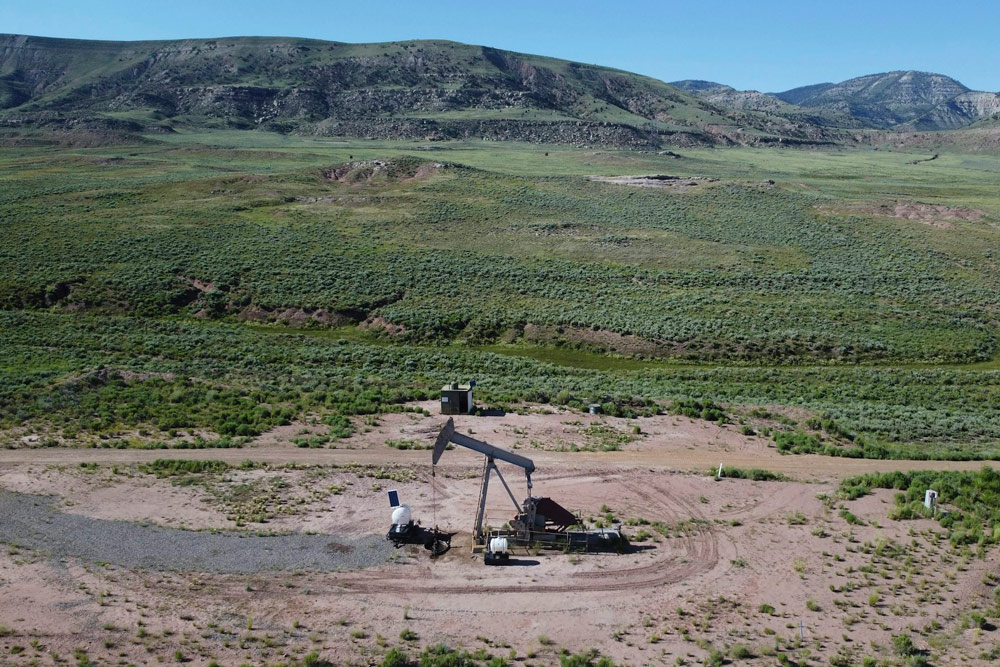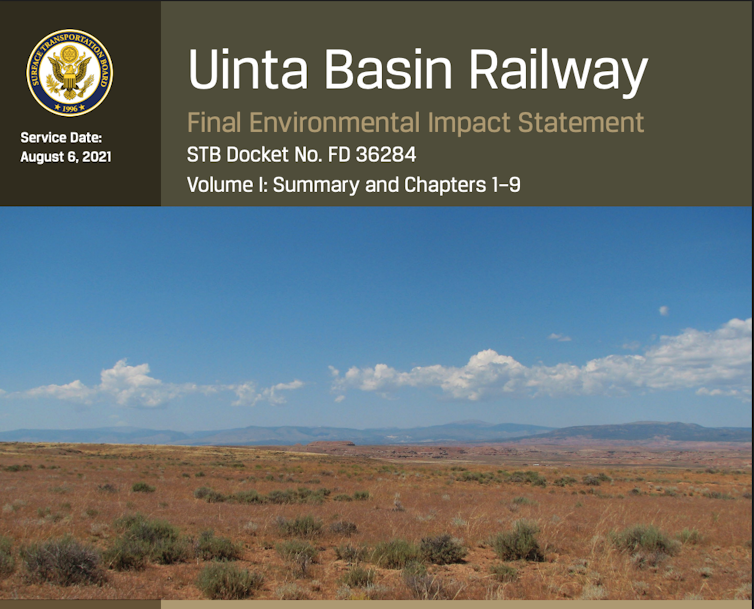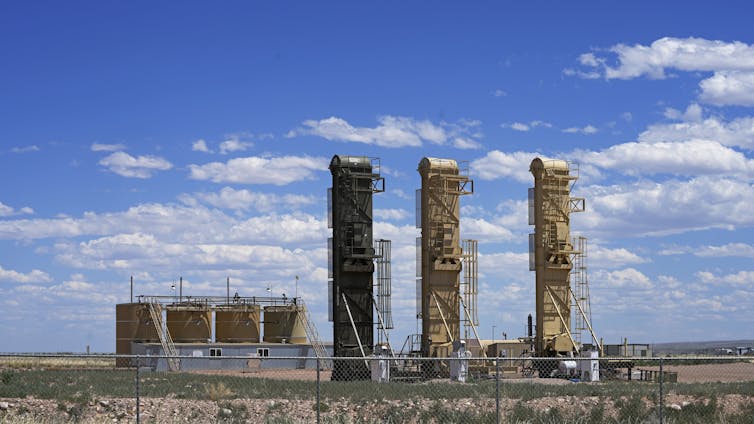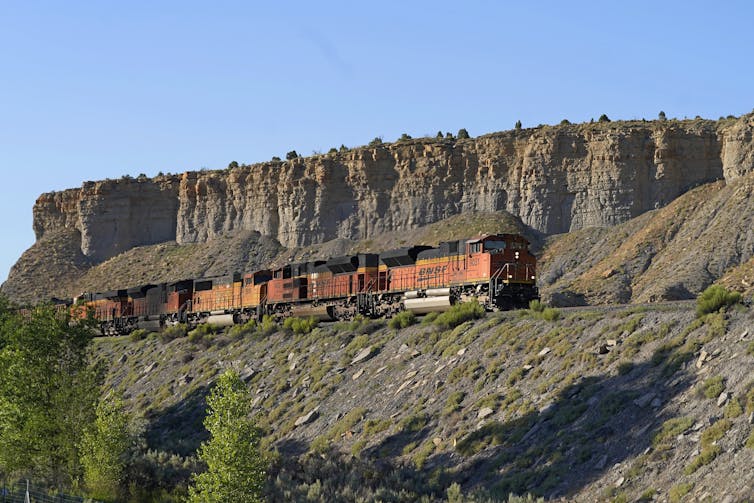
By J.B. Ruhl
Getting federal approval for permits to build bridges, wind farms, highways and other major infrastructure projects has long been a complicated and time-consuming process. Despite growing calls from both parties for Congress and federal agencies to reform that process, there had been few significant revisions – until now.
In one fell swoop, the U.S. Supreme Court has changed a big part of the game.
Whether the effects are good or bad depends on the viewer’s perspective. Either way, there is a new interpretation in place for the law that is the centerpiece of the debate about permitting – the National Environmental Policy Act of 1969, known as NEPA.
Taking a big-picture look
NEPA requires federal agencies to document and describe the environmental effects of any proposed action, including construction of oil pipelines, renewable energy and other infrastructure projects.
Only after completing that work can the agency make a final decision to approve or deny the project. These reports must evaluate direct effects, such as the destruction of habitat to make way for a new highway, and indirect effects, such as the air pollution from cars using the highway after it is built.
Decades of litigation about the scope of indirect effects have widened the required evaluation. As I explain it to my students, that logical and legal progression is reminiscent of the popular children’s book “If You Give a Mouse a Cookie,” in which granting a request for a cookie triggers a seemingly endless series of further requests – for a glass of milk, a napkin and so on. For the highway example, the arguments went, even if the agency properly assessed the pollution from the cars, it also had to consider the new subdivisions, malls and jobs the new highway foreseeably could induce.
The challenge for federal agencies was knowing how much of that potentially limitless series of indirect effects courts would require them to evaluate. In recent litigation, the question in particular has been how broad a range of effects on and from climate change could be linked to any one specific project and therefore require evaluation.
With the court’s ruling, federal agencies’ days of uncertainty are over.

U.S. Surface Transportation Board
Biggest NEPA case in decades
On May 29, 2025, the Supreme Court – minus Justice Neil Gorsuch, who had recused himself – decided the case of Seven County Infrastructure Coalition v. Eagle County, Colorado, the first major NEPA dispute before the court in 20 years.
At issue was an 85-mile rail line a group of developers proposed to build in Utah to connect oil wells to the interstate rail network and from there transport waxy crude oil to refineries in Louisiana, Texas and elsewhere. The federal Surface Transportation Board reviewed the environmental effects and approved the required license in 2021.
The report was 637 pages long, with more than 3,000 pages of appendices containing additional information. It acknowledged but did not give a detailed assessment of the indirect “upstream” effects of constructing the rail line – such as spurring new oil drilling – and the indirect “downstream” effects of the ultimate use of the waxy oil in places as far flung as Louisiana.
In February 2022, Eagle County, Colorado, through which trains coming from the new railway would pass, along with the Center for Biological Diversity appealed that decision in federal court, arguing that the board had failed to properly explain why it did not assess those effects. Therefore, the county argued, the report was incomplete and the board license should be vacated.
In August 2023, the U.S. Court of Appeals for the D.C. Circuit agreed and held that the agency had failed to adequately explain why it could not employ “some degree of forecasting” to identify those impacts and that the board could prevent those effects by exercising its authority to deny the license.
The railway developers appealed to the Supreme Court, asking whether NEPA requires a federal agency to look beyond the action being proposed to evaluate indirect effects outside its own jurisdiction.

AP Photo/Rick Bowmer
A resounding declaration
Writing for a five-justice majority, Justice Brett Kavanaugh delivered a ringing, table-pounding lecture about courts run amok.
Kavanaugh did not stop to provide specific support for each admonition, describing NEPA as a “legislative acorn” that has “grown over the years into a judicial oak that has hindered infrastructure development.” He bemoaned the “delay upon delay” NEPA imposes on projects as so complicated that it bordered “on the Kafkaesque.”
In his view, “NEPA has transformed from a modest procedural requirement into a blunt and haphazard tool employed by project opponents.” He called for “a course correction … to bring judicial review under NEPA back in line with the statutory text and common sense.” His opinion reset the course in three ways.
First, despite the Supreme Court having recently reduced the deference courts must give to federal agency decisions in other contexts, Kavanaugh wrote that courts should give agencies strong deference when reviewing an agency’s NEPA effects analyses. Because these assessments are “fact-dependent, context-specific, and policy-laden choices about the depth and breadth of its inquiry … (c)ourts should afford substantial deference and should not micromanage those agency choices so long as they fall within a broad zone of reasonableness.”
Second, Kavanaugh crafted a new rule saying that the review of one project did not need to consider the potential indirect effects of other related projects it could foreseeably induce, such as the rail line encouraging more drilling for oil. This limitation is especially relevant, Kavanaugh emphasized, when the effects are from projects over which the reviewing agency does not have jurisdiction. That applied in this case, because the board does not regulate oil wells or oil drilling.
And third, Kavanaugh created something like a “no harm – no foul” rule, under which “even if an (environmental impact statement) falls short in some respects, that deficiency may not necessarily require a court to vacate the agency’s ultimate approval of a project.” The strong implication is that courts should not overturn an agency decision unless its NEPA assessment has a serious flaw.
The upshot for the project at hand was that the Supreme Court deferred to the board’s decision that it could not reliably predict the rail line’s effects on oil drilling or use of the oil transported. And the fact that the agency had no regulatory power over those separate issues reinforced the idea that those concerns were outside the scope of the board’s required review.

AP Photo/Rick Bowmer
A split court
Although Justice Sonia Sotomayor, joined by Justices Elena Kagan and Ketanji Brown Jackson, wrote that she would have reached the same end result and upheld the agency permit, her proposed test is far narrower.
By her reading, the federal law creating the Surface Transportation Board restricted it from considering the broader indirect effects of the rail line. But her finding would be relevant only for any federal agencies whose governing statutes were similarly restrictive. By contrast, Kavanaugh’s “course correction” applies to judicial review of NEPA findings for all federal agencies.
Though the full effects remain to be seen, this decision significantly changes the legal landscape of environmental reviews of major projects. Agencies will have more latitude to shorten the causal chain of indirect effects they consider – and to exclude them entirely if they flow from separate projects beyond the agency’s regulatory control.
Now, for example, if a federal agency is considering an application to build a new natural gas power plant, the review must still include its direct greenhouse gas emissions and their effects on the climate. But emissions that could result from additional gas extraction and transportation projects to fuel the power plant, and any climate effects from whatever the produced electricity is used for, are now clearly outside the agency’s required review. And if the agency voluntarily decided to consider any of those effects, courts would have to defer to its analysis, and any minor deficiencies would be inconsequential.
That is a far cry from how the legal structure around the National Environmental Policy Act has worked for decades. For lawyers, industry, advocacy groups and the courts, environmental review after the Eagle County decision is not just a new ballgame; it is a new sport.
![]()
J.B. Ruhl is Professor of Law, Director of the Program on Law and Innovation, and Co-director of the Energy, Environment and Land Use Program at Vanderbilt University.





























Pogo says
@Speed on
… hell has room for all.
The dude says
Obviously the current environment hating regime will go way too far with this, but I can’t bring myself to dislike the idea that projects should NOT take years and years and huge piles of $$$ to be approved or denied.
There is much room for improvements here. The environment can be reasonably protected with less red tape. All this institutional obstruction does is make things harder, and more expensive to reach approval, which shuts out all but the companies with the deepest pockets, which in turn make it all much much more expensive than it has to be.